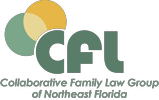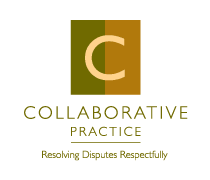What is Collaborative Family Law?
Collaborative Family Law is a interdisciplinary problem-solving approach to divorce that includes mental health professionals, (who act as divorce coaches), neutral financial specialists, attorneys, and, when needed, a child specialist. Families receive assistance from these professionals to help resolve family disputes, including divorce. Each Collaborative Family Law team member assists the family by working collaboratively with other team members to find mutually acceptable, viable solutions that address every area of divorce and family law - including parenting, support, division of assets, maintenance of important family relationships . Mental health specialists, acting as coaches, teach communication skills so that spouses and partners can better discuss their needs, including the needs of children. Finances are addressed with a financial specialist (sometimes called a "Financial Neutral"). These financial professionals help identify assets and liabilities, create budgets, and teach financial skills where needed. People often wonder about the cost of Collaborative Family Law, expressing concern about the number of professionals involved in a collaborative divorce. Even with the cost of additional professionals, the overall cost of a collaborative process can be far less than the litigated approach because negotiations are solutions oriented, and often more focused and efficient. The family is in control of the "divorce clock," not the courts. Collaborative Family Law offers a process where individuals, with the help of collaboratively trained professionals, agree to work together respectfully, honestly and in good faith to find win-win solutions. No one goes to court until a final agreement is reached. If either partner threatens litigation, the collaborative process terminates, and the collaborative team members are disqualified from any further involvement in the case.
How is Collaborative Divorce different from Traditional Litigation?
The biggest difference between the Collaborative Divorce and Traditional Litigation is that the participants, including the divorcing parties and the professionals, agree that they are working to seek RESOLUTION WITHOUT LITIGATION. So, what makes this happen? At the beginning of the process, both partners and the collaborative team professionals enter into a participation agreement stating that the case will not be litigated.
What is the difference between Collaborative Family Law and Mediation?
In mediation, there is one "neutral" professional who helps the disputing parties try to settle their differences. Parties to mediation can be represented by lawyers, or may attend mediation without lawyers. The mediator cannot give either party legal advice, and cannot advocate for either person's position. If either party becomes unreasonable, lacks negotiating skills, or is emotionally charged, the mediation can become unbalanced. As the mediator works to get the process "unstuck," he or she can be viewed as biased. This can cause the mediation process to break down. In some cases, it leads to what is perceived as a one-sided or "unfair" agreement. Because most people want to avoid litigation, they sometimes "settle" without really identifying or resolving the emotion issues present in almost every family dispute. It is not uncommon for a party to mediation to feel "buyer's remorse" after the agreement is signed. Collaborative Family Law requires that each spouse or partner have their own attorney. Each gets their own independent legal advice. All four participants - both lawyers and both spouses or partners - meet together in a series of meetings to work out a solution that satisfies both parties.Transparency and respect are the cornerstone of any collaborative negotiation. If the process breaks down, the participants can agree to bring in other collaboratively trained professionals to help. Because there is no threat of litigation, the negotiation process can take as long as needed. This can lead to a better agreement and a brighter future.
Why does Collaborative Family Law use so many professionals?
Collaborative Family Law allows each professional to focus on issues relevant to their expertise. The concept of "the liberation of delegation" means that any professional, rather than struggling to address an issue that is outside their specialty, immediately refers the client to an appropriate colleague for assistance. This keeps the process moving along and helps to control costs.
How much will a Collaborative Divorce cost?
Although we stress that clients should not select this approach simply as a low cost alternative, experience across the country suggests that a Collaborative Divorce can cost less than a litigated divorce. The cost depends on the complexity of your family and the amount of time required to resolve your issues. It is possible to have a lower cost divorce because a collaborative divorce involves reaching a settlement agreement prior to filing anything with the court. Instead of using competing experts, financial experts are selected by the spouses or partners as neutrals who educate and assist in gathering information, analyzing financial documents, and seeking alternatives. Mental health professionals are used as coaches and communication specialists and, where children are involved, spouses or partners agree on a mental health professional to provide a voice for the child. In a Collaborative Divorce, you allocate your funds so that each professional is paid to do what he or she is best qualified for. This is usually a more efficient, cost-effective way to resolve family disputes.
What kind of information is disclosed and what documents are signed in the Collaborative Family Law process?
Both sides sign a binding agreement to fully and immediately disclose all documents and information related to the issues. Undermining behaviors, such as keeping secrets, hiding information, and tactics that delay the process, are not permitted. All information is shared openly by the team. Attorneys, mental health professionals, and financial specialists, working together with the clients, seek to create win-win solutions for all members of the family.
Why is Collaborative Family Law such an effective settlement process?
The Collaborative Family Law attorneys understand that to effectively assist the client, they must help the entire family. Collaborative Family Law attorneys who have practiced in traditional litigated divorce often go through their own professional "paradigm shift." Instead focusing on "winning" the most for their own client, no matter what the human or financial cost, collaborative lawyers seek healthy outcomes that benefit every family member. Collaborative Family Law attorneys do not work as "hired guns". They do not take advantage of mistakes inadvertently made, instead promoting accurate, transparency and complete disclosure. They expect and encourage good-faith problem-solving behavior from their clients, themselves, and the rest of the collaborative team.Collaborative Family Law attorneys trust each other. They advocate for their client, but only in a manner that is respectful and considerate of the effect of each decision on all involved. Respect and integrity are hallmarks of the Collaborative Family Law process. The attorneys strive to create an atmosphere of cooperation and integrity, encouraging the client to aspire to those same standards. Collaborative Family Law offers an effective and efficient way to identify and resolve family conflict. Each spouse or partner receives independent legal advice. The Collaborative Family Law attorney is available as a legal advocates throughout the process, providing legal advice and counsel. Working with mental health professionals acting as coaches, the Collaborative Family Law attorney seeks to assure the client that workable solutions are possible if both spouses or partners remain reasonable; interact in a positive manner; and stay committed to the principles of respectful, solutions-oriented negotiation. Collaborative Family Law encourages creative problem solving and engages the strengths of all the team members. Collaborative Family Law attorneys know that to benefit their own client, they must also be supportive of a good settlement for the other spouse or partner. Supportive. Considerate. Sensible. Constructive. Mutual. That's why Collaborative Family Law is such an effective settlement process for resolving family disputes.
Is Collaborative Family Law right for me?
Collaborative Family Law is a healthy model for resolving family disputes because it attempts to identify and address settlement issues while developing more effective ways of communicating with one another. It may be right for your family if you and your spouse or partner: (a) want professional support, emotionally, financially, and legally, to guide you throughout your divorce; (b) want to control and contain the financial and emotional costs of divorce; (c) want to address the needs of children and other family members affected by your divorce; (d) want to preserve family wealth and future earning potential; (e) want to minimize the conflict that often accompanies divorce, and are willing to try something different to accomplish this; (f) want a confidential process that limits the amount of personal information filed in the public record; or (g) recognize the importance of a civil, respectful post-divorce relationship with each other.
Where does the process start?
If you want to learn more about the Collaborative Family Law process, contact a collaboratively trained attorney and schedule a private, confidential consultation. People often ask whether an entire collaborative team must be utilized in every case. The answer is no! Each situation is unique. For the process to work, each spouse or partner must have their own collaboratively trained attorney. Once a decision is made to proceed with a Collaborative Family Law process, the spouses or partners and their attorneys meet together is what is called a "4-way" meeting to sign a participation agreement, identify issues, and decide what other professionals need to be added to the team. In some cases, it may make sense to bring in a mental health professional or financial specialist for only certain issues. In other cases, a full inter-disciplinary approach is necessary.
Contact a Collaborative Family Law Group team member
Because our professionals are independent practitioners, please select and contact a Collaborative Family Law professional directly who you feel can best answer your questions. Schedule a private, confidential consultation to learn more about Collaborative Family Law. If you decide to go forward, your Collaborative Family Law professional can guide you to the next step. Find our member listings here.


